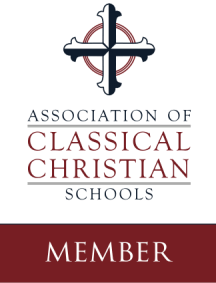Patrick holds a Bachelors of Arts in Great Books from Bethlehem College and Seminary. He is currently pursuing a Masters of Divinity from Reformed Theological Seminary Online.
Patrick married his college sweetheart in 2016. Originally from Colorado, they love living in the Boulder area and are excited to be part of discipling and training the next generation. Together they enjoy visiting coffee shops, reading great fiction, and the theater. They are members of Calvary Bible Evangelical Free Church in Boulder.
Patrick is excited for the opportunity to be teaching and sharing the classical education he received at Bethlehem College, where the great books are studied in light of the Greatest Book for the sake of the Great Commission.
Patrick’s Philosophy of Education
My philosophy of teaching focuses on the six habits of mind and heart that I learned while at Bethlehem College in Minneapolis. These habits are there to serve students as they progress out of the classroom and prepare them to become lifelong learners and achievers of great things. The mark of a truly educated person is not their ability to pass a test or regurgitate a prepared answer, but to be able to grasp another’s meaning, understand it thoroughly, and to answer it with the wisdom God has provided in His Word and His world.
The first habit of mind and heart is observing. Students must learn how to see for themselves what is before them, not just to be told what is before them. This first habit is the foundation for all critical thinking, as the student learns how to see for themselves what is in a text, or in creation, or the content of another’s speech. Then after learning to observe carefully, they can begin to see the world in the way in which God sees.
The second habit of mind and heart is understanding. This is the habit of being able to rearticulate the ideas of another in such a clear way that the author themselves would exclaim with delight over being so well understood. Without this habit, education becomes a twisting of other’s words to fit one’s own worldview. Understanding both Scripture and secular writers from all times and places exposes the flaws and faults of our own culture’s thinking and opens up students to the beautiful truth that God has set in His Word and world.
The third habit of mind and heart is evaluating. Since God is the source of absolute truth and He has revealed it to us first through the special revelation of His word and then through the general revelation of reason, students must be taught how to put the claims of authors against the truth of God. Only then can students learn how to rightly sift the true things that authors may be saying from the dross of cultural or philosophical falsity. This habit is crucial, for it allows students to honestly engage secular authors while still holding the Scriptures as the standard against which all claims about reality must be measured against.
The fourth habit of mind and heart is feeling rightly. Since God has ordained that people be feelers as well as thinkers, helping students pay attention to their emotional responses is a vital part of education. God is glorified by our right emotions of joy over Him and sorrow over sin. This habit of observing and understanding our emotions as we encounter reality helps students to see the way in which they are reacting to God’s Word and world.
The fifth habit of mind and heart is applying. The truths that are learned in the classroom must reshape the lives of students, otherwise the teaching has failed. Therefore, the process of students applying truth to their actual lives must be taught and followed through on, so that students can learn that the life of the mind and the life of the heart are intertwined.
The sixth and final habit of mind and heart is expressing. This the final step of a student who has passed through all the other stages of learning and can finally teach others the truths they have learned. This final habit is arguably one of the greatest goals of education, so that as students come to love God and their neighbor more, they can also help others to do the same.
These habits of mind and heart represent the core of my philosophy of teaching. Students come into contact with the greatest thinkers and ideas throughout history in the arena of classical education. They would have learned the habits to not just poke holes in the arguments of others, but apply the Golden rule to learning, understanding others as they wish to be understood.





